English Staffies can be wonderful family companions due to their loving and loyal nature. This guide contains critical information to help you have a healthier and happier relationship with these incredible canines. By addressing chewing behavior difficulties, the information in this article will help you deepen your bond with your dog and achieve great results.
İçerik Tablosu
- 1 Why Do English Staff Puppies Chew?
- 2 Immediate Ways to Prevent Chewing Behavior
- 3 The Importance of Socialization for Your English Staff Puppy
- 4 Training Your English Staff Puppy to Stop Chewing Habits
- 5 Consistency is Crucial for Your Puppy
- 6 When to Seek Professional Help
- 7 Long-Term Strategies to Stop Chewing Habits
Why Do English Staff Puppies Chew?
Understanding why English Staff puppies have a tendency to bite is a key step in addressing this behavior. Here are some common reasons:
Teething:
English Staff puppies, like all puppies, undergo discomfort throughout the teething process. Their teeth may itch or ache, and biting might be a response to alleviate the discomfort.
Exploratory Behavior:
Certain breeds, such as the English Staff, frequently utilize their lips to explore their surroundings. Puppies may chew while investigating new things, textures, or their surroundings.
Play and Excitement:
English Staff puppies can become overly excited during play, losing control and developing a biting reflex.
Lack of Socialization:
An English Staff puppy that has not been properly socialized may bite to communicate or exert authority. This can cause problems with interactions with other canines or humans.
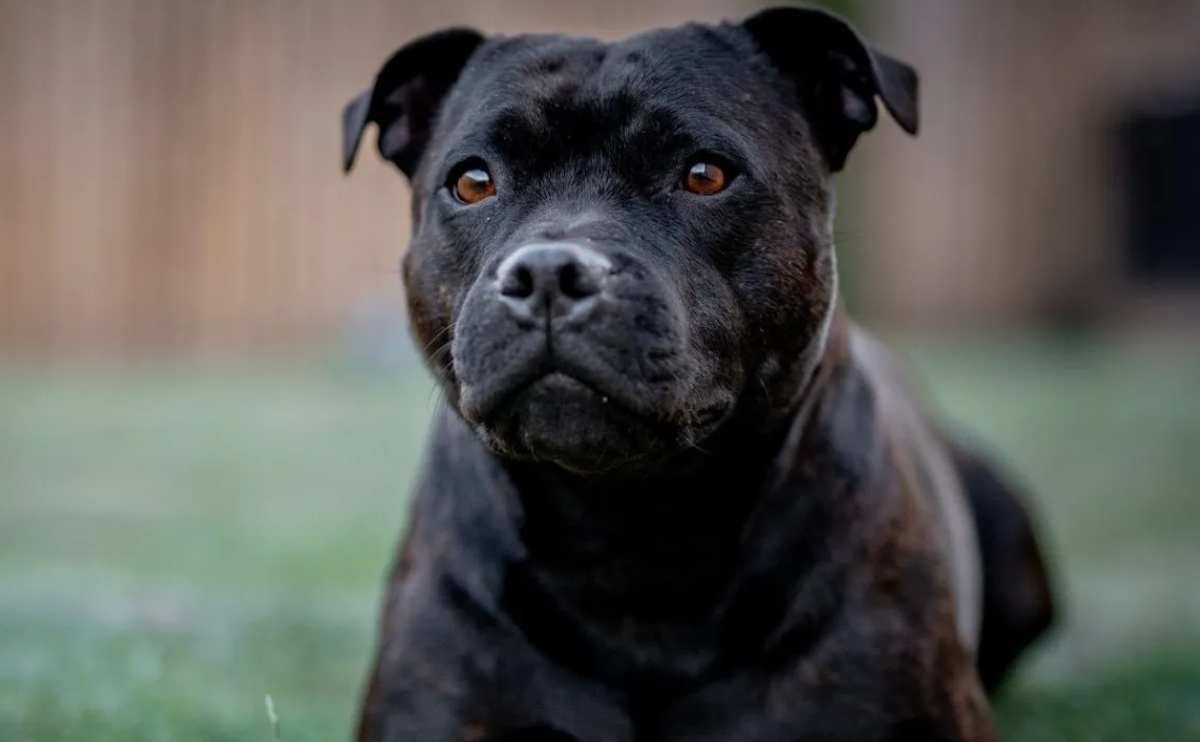
Immediate Ways to Prevent Chewing Behavior
Verbal Corrections:
When your English Staff puppy exhibits biting behavior, provide a firm but not overly loud verbal warning like “No!” This immediate feedback helps your puppy understand that biting is unacceptable.
Redirection:
After the verbal warning, quickly redirect your puppy’s attention to an appropriate toy or chew item. This is crucial for teaching them what is acceptable to bite.
Time-Out:
If your puppy continues to bite, implement a time-out strategy. Place them in a safe, isolated area for one to two minutes. This helps them calm down and understand that biting has negative consequences.
Positive Reinforcement:
Always reward or praise your puppy when they display good behavior. For example, when they engage with their toys or chew items instead of your fingers, offer them a small treat or affectionate praise.
The Importance of Socialization for Your English Staff Puppy
Allowing your puppy to have new experiences, engage with their surroundings, and explore diverse situations helps them develop their social abilities. These interactions decrease the likelihood of behaviors like as biting while communicating. This process helps them become a more balanced, safe, and well-adjusted member of society.
Training Your English Staff Puppy to Stop Chewing Habits
The recommended approaches for training against chewing or biting should take into account your dog’s physical and mental wellbeing.
If your dog bites too hard, immediately cease playing as the intensity diminishes and answer gently with a word like “no.” Pause the game for a few minutes before continuing. This allows your dog to recognize what is acceptable.
While preventing undesirable conduct, it is critical to teach them what behavior is desirable. Reward your dog for controlling their biting strength. During play, redirect them to chew their toy or participate in another behavior and reward their efforts.
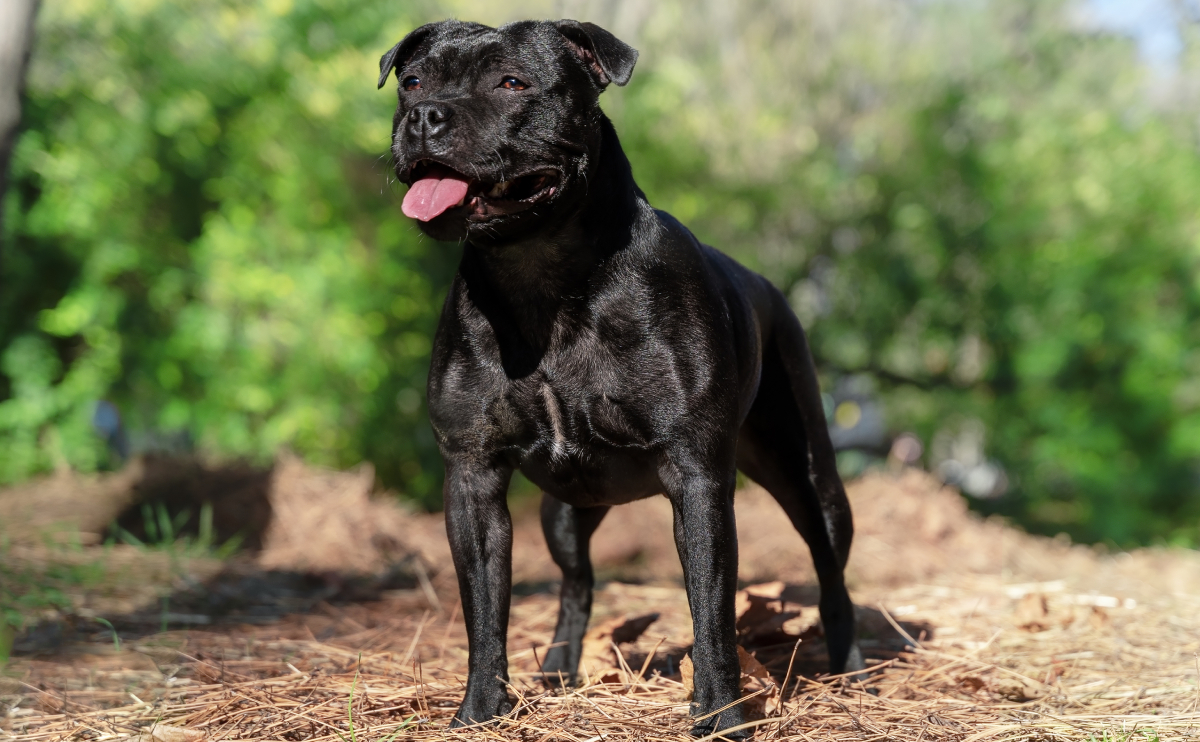
Consistency is Crucial for Your Puppy
When teaching your dog that biting is wrong, consistency is vital. Ensure that all family members use the same verbal cues and follow the same procedures to prevent confusion for your puppy.
When to Seek Professional Help
If you’re not making success with your puppy’s biting and chewing behavior despite your best efforts, it may be time to consult with an experienced and specialist dog trainer. Professional trainers can provide customized training programs that account for your puppy’s particular habits. These programs may offer specific approaches for understanding and correcting your puppy’s biting behavior.
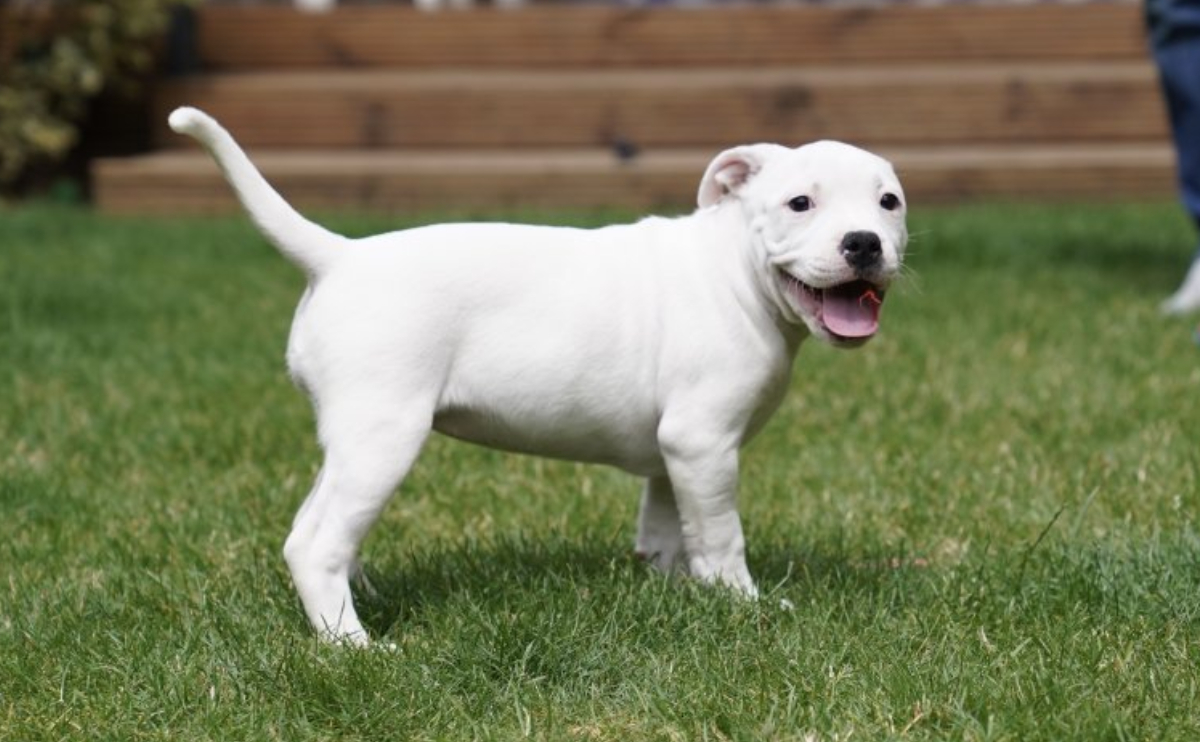
Long-Term Strategies to Stop Chewing Habits
Exercise
Regular and adequate exercise not only meets your puppy’s physiological needs, but also stimulates his mind. This allows your dog to release energy and settle down. Walks, runs, playing, and mental games are all good ways to get some exercise.
Mental Stimulation
Mental stimulation is critical for promoting a healthy lifestyle and reducing undesirable behaviors. Engaging games, puzzle toys, and basic obedience training are wonderful ways to address this dog breed’s cerebral needs.
Quality Toys
During teething, your puppy may feel discomfort or slight pain in their mouth. Appropriate chew toys can help your puppy get through this period more easily.
Redirecting your puppy’s attention to these toys might lower the likelihood of him destroying household goods and engaging in chewing activity.
When selecting toys, safety should always come first. Avoid toys that can be broken into little pieces or ingested. In addition, check the toys on a regular basis for wear and tear and replace them as needed.
Veterinary Check-ups
Regular veterinary check-ups are essential for monitoring your puppy’s health and identifying potential issues early on. These visits are also crucial for ruling out any underlying health problems that could contribute to chewing and biting habits.
The training process requires patience, and each dog is unique, so it’s important to tailor training methods to your dog’s personality and responses. Focus on positive reinforcement throughout the training process and be patient in educating your dog without causing fear or anxiety. Consistency and a positive approach are key in training. If you have concerns, seeking support from a professional dog trainer can be beneficial.
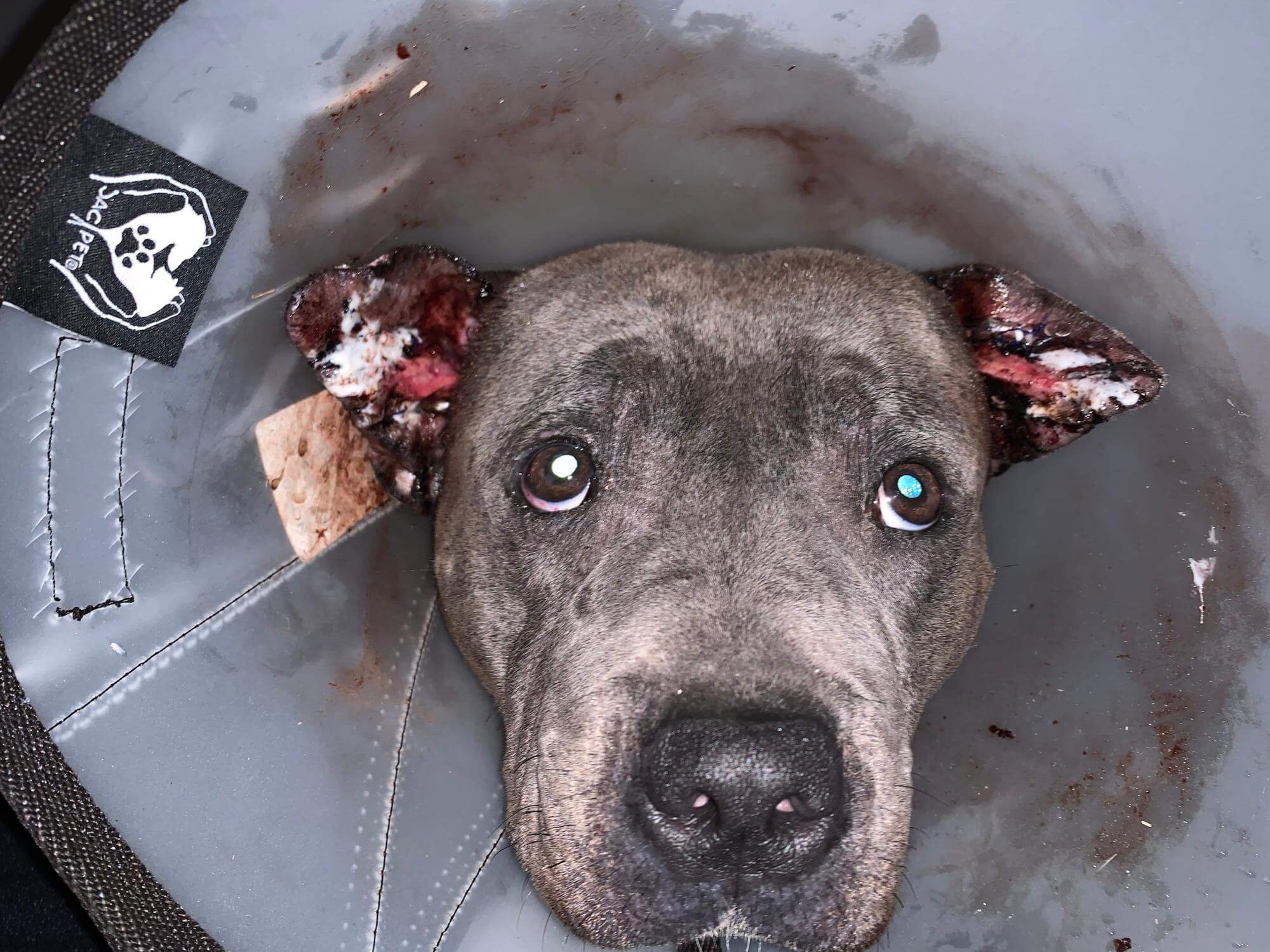
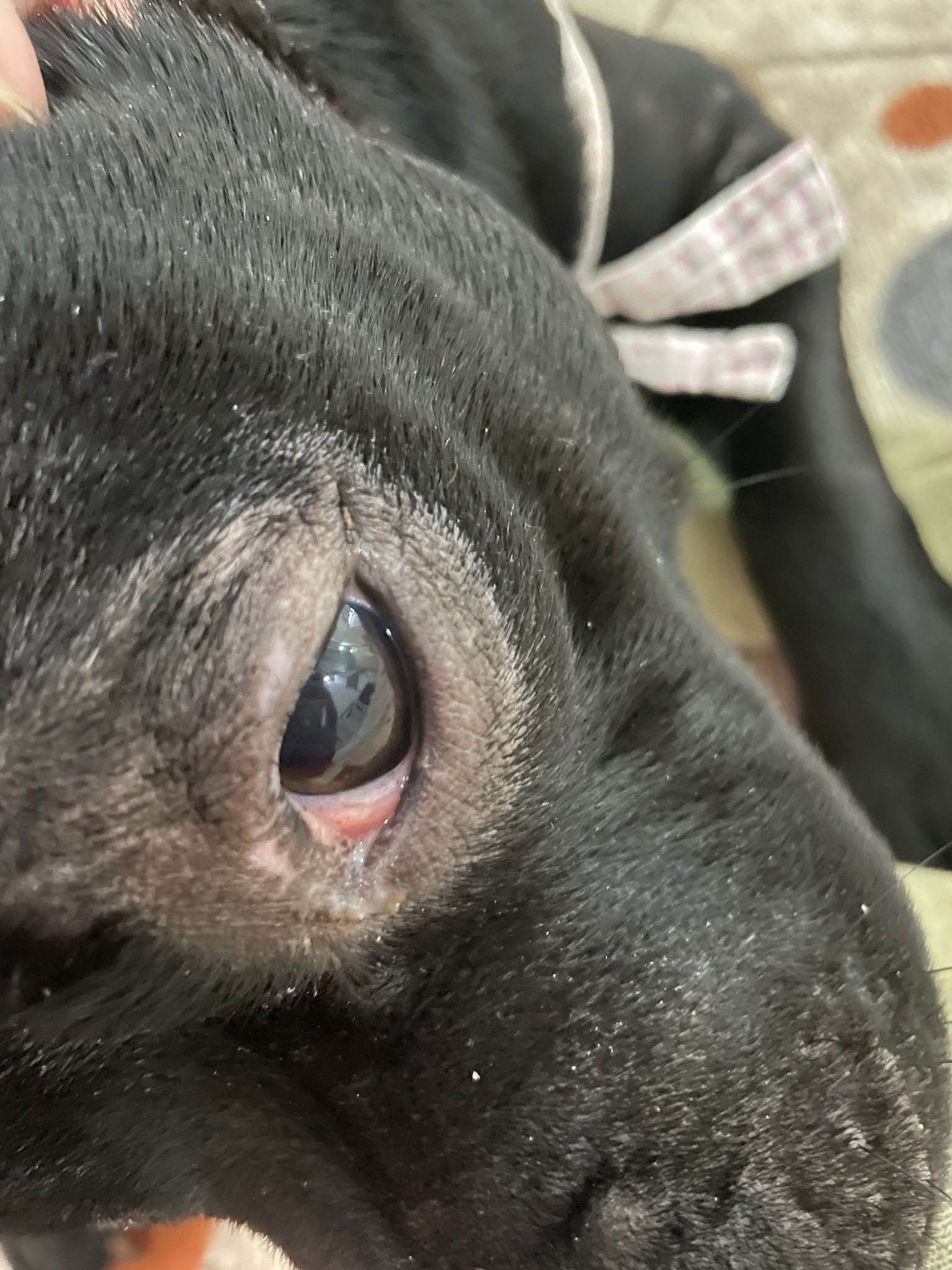
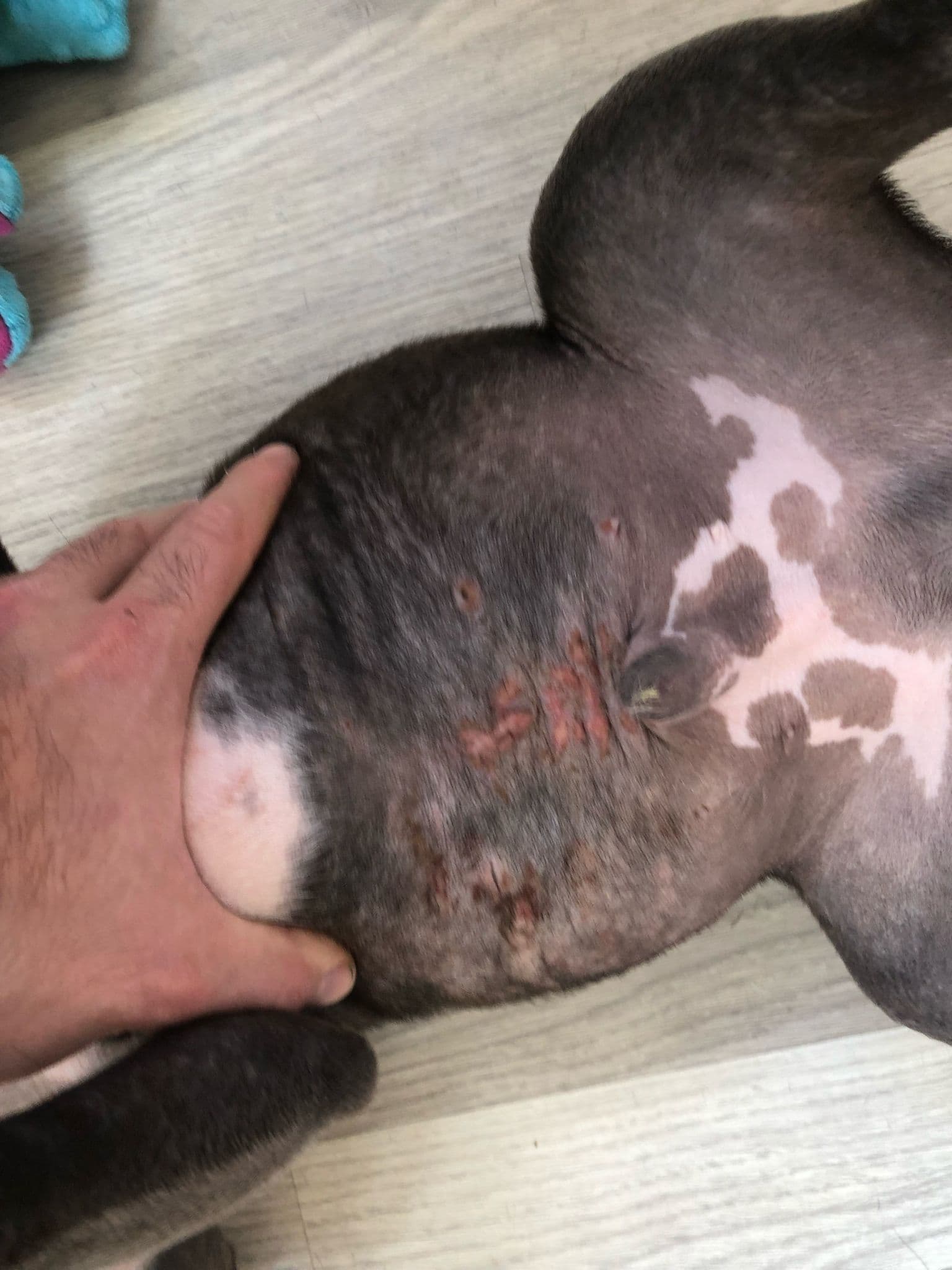
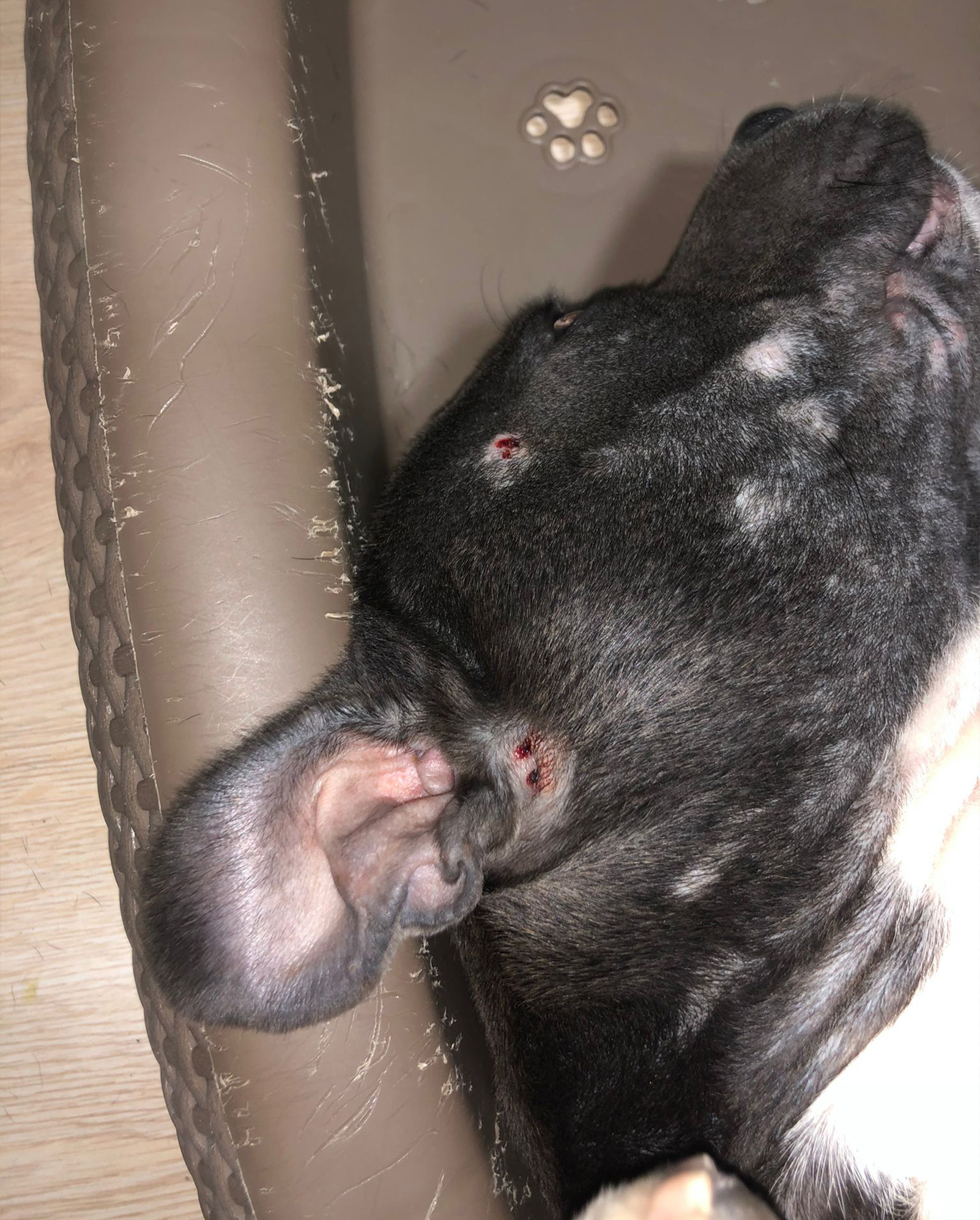
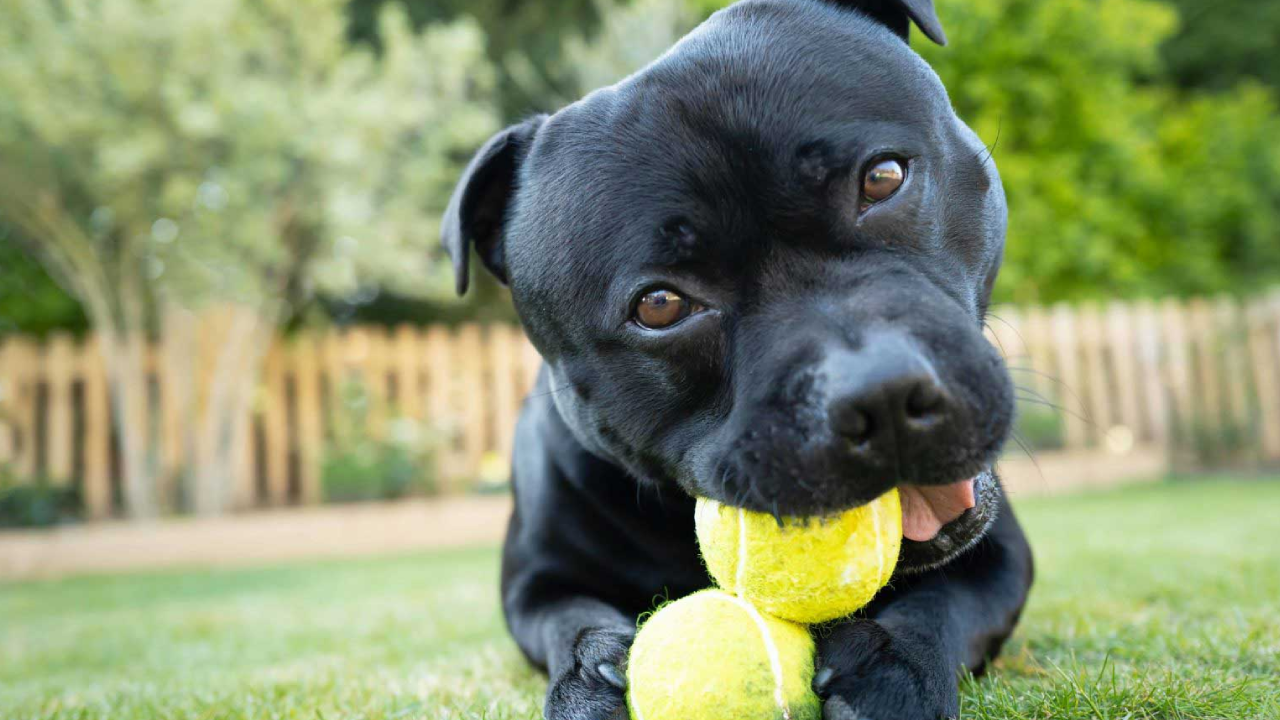
Most Read Articles
Ways to Socialize Staffordshire Bull Terrier Puppy
English Staff puppies are known for their tenacity, bravery, and strong affection for people. Proper...
Sep
How to Stop Your English Staff Puppy Chewing Things
English Staffies can be wonderful family companions due to their loving and loyal nature. This...
Nov
English Staffordshire Bull Terrier and Allergies: Ways to Keep Our Loyal Companions Healthy
The English Staffordshire Bull Terrier is a wonderful dog known for its cheerful nature and...
Dec